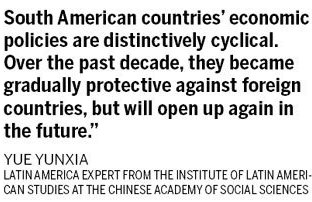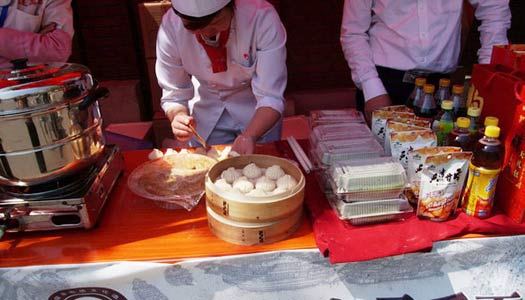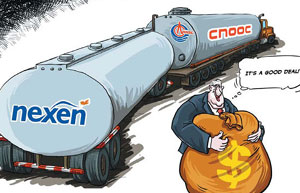The ups and downs of Latin adventure
Updated: 2012-07-24 09:10Local governments' attitudes toward foreign investment can also be ambiguous.
Brazil has seen a sharp increase in Chinese investment in recent years. By the end of 2009, the total volume of Chinese investment stood at $200 million.
In 2010 alone, $17 billion in Chinese investment flowed into Brazil, making China the country's largest foreign investor.
But despite China's enthusiasm to invest, the Brazilian government has seemed reluctant to facilitate the investments.
A well-known joke is that several bilateral business bodies - all claiming to be official China-Brazil chambers of commerce - compete for connections and business.
Another issue is that some Chinese companies have found their investments - and themselves - being used a pawn to gain power and popularity by competing political parties.
"They (the governments and political parties in Latin American countries) treat foreign investments in quite a different way from China," said TEQSA General Manager Li Dacan.
 |
There are, of course, success stories, but even successes come with a degree of strain.
Shanghai-listed construction machinery giant Sany Heavy Industry Co Ltd, for instance, was one of the first Chinese investors in Brazil in the sector.
The company announced in March 2010 its first Latin American investment of $200 million in a production base in Sao Jose, two-hours' drive from the country's largest city, Sao Paulo.
The investment was Sany's largest in the Latin America region.
Over the past two years, it has seen explosive increases in its sales to local markets as a result.
In 2011, its sales reached $108 million compared with $30 million in the previous year. Competing with international players such as Caterpillar Inc, the world's biggest heavy machinery maker, some of Sany's products have become market leaders in Brazil.
But despite the growing sales, the company has admitted to difficulty in making profits.
"Labor costs are too high," said Xu Ming, assistant to the president of Sany.
He said the monthly salary for a middle-level manager in Brazil could stand at $7,000 on average, way above their Chinese counterparts and "almost the same as levels in the United States".
- BYD exports three electric cars to Thailand
- Grid gets first jolt of residential solar power
- US now largest buyer of China's exports
- China's outbound M&As on the rise
- Tobacco control may entail price, tax rises
- Quanzhou becomes pilot financial reform zone
- New automobiles shine at Geneva Motor Show
- World's longest high-speed rail 'on track'
- Jiugui Liquor involved in plasticizer scandal again
- Accident reignites school bus safety concerns
- China to revise labor law
- Trademark registration under scrutiny
- Dinner ban takes toll on liquor firms
- CIC tables bid for London's Chiswick Park
- Property buyers eye overseas market
- Call for law to protect personal information
- China to cut train ticket prices
- Christmas business
- Solar industry to get jolt from new policies
- KFC chicken under spotlight
















